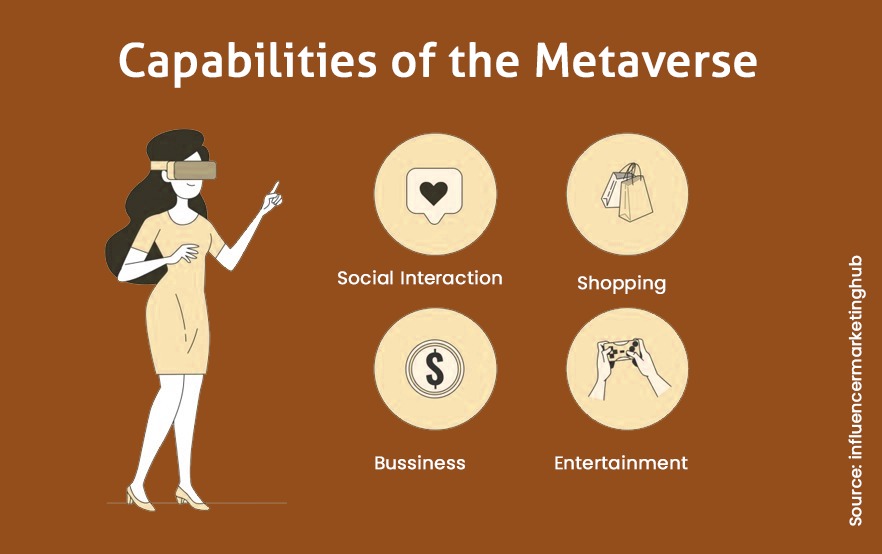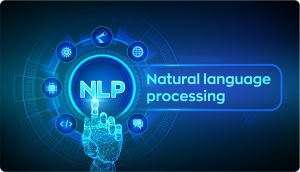
The concept of the metaverse is straight out of a science fiction novel. In late October 2021 when Mark Zuckerberg announced that Facebook would be rebranded to ‘Meta’, it sent a strong signal to the rest of the world that the metaverse would enter mainstream consciousness very soon. Several other companies including Nvidia and Microsoft are also exploring the possibilities of the metaverse and investing heavily in it. One report by Bloomberg predicts that the metaverse will be worth $2.5 trillion by 2030. While it might sound beyond the realm of possibilities right now, the metaverse could actually shape the way we consume the internet in decades to come. So, what does metaverse mean in the first place?
What is the metaverse
The metaverse derives its name from: ‘meta’ meaning beyond and ‘universe’. To put it simply, the metaverse changes the relationship we have with the internet. Rather than us seeking out the internet, for example, by actively taking out our phones and searching for something on Google, the internet will exist all around us.
Existing concepts like virtual reality and augmented reality form the basis of the metaverse. For instance, imagine virtual simulation games come to life. You could create your own avatars and interact with other avatars in a very life-like manner. This could be a very important application of the metaverse as people are increasingly depending on virtual interactions, both in a personal and professional setting. In a retail setting, you could simulate an in-store shopping experience, browse through products, try them on and ship them to your home from practically any location.
Also read: Technology Trends for 2022: Is Web 3.0 Coming?
What could virtual reality spaces look like?
The metaverse will rely heavily on user-generated content. In other words, virtual worlds could look like whatever you want them to look like. But there are a few main characteristics that all interpretations of the metaverse will have in common:
- Interactive:The metaverse isn’t a static entity; users can manipulate and influence the environment in any way they want to. This is one of the key differences between virtual worlds and our current consumption of the internet.
- Corporeal: The metaverse closely reflects our real-world environment. Virtual reality spaces have to look hyper-realistic and conform with the way humans see the world around them.
- Interoperable: While there might be a number of companies creating their interpretations of the metaverse, all of them are fundamentally a part of the same ‘universe’. Avatars created and assets possessed in one can be used in others.
- Complete economy: The metaverse is a full-fledged economy where goods can be bought, traded and sold. Importantly, ownership of goods in one metaverse is applicable in other metaverses.
Also read: Chatbot trends for 2022 and Why Businesses are Taking Notice
What does metaverse mean for marketing?

As users gradually spend more time in the metaverse, it naturally follows that brands will start to advertise within virtual reality spaces as well. The metaverse offers a huge marketing opportunity for companies because it allows them to offer customers an extremely personalized and interactive experience. For example, rather than commenting on a company’s Facebook page, as a typical customer might do today, in the future, they could speak to the brand itself, represented by a human figure, or an avatar. The metaverse could also permanently change consumer preferences and buying behavior in ways that we cannot quite predict yet. Brands, therefore, should keep an eye out for emerging trends to keep their marketing strategies relevant and effective.
For example, rather than commenting on a company’s Facebook page, as a typical customer might do today, in the future, they could speak to the brand itself, represented by a human figure, or an avatar.
Purchasing real estate in the metaverse
Does buying property in virtual worlds sound mind-boggling? This could very well be a reality with the development of the metaverse. One of the main reasons why property ownership is important in virtual reality is because of the concepts of interoperability and asset ownership in the metaverse. A company or individual who owns a stadium or art gallery in the metaverse owns it in every single version of the metaverse. Imagine a virtual concert being hosted within a stadium in the metaverse. The owner would be able to charge the artist for permission to use it and concertgoers to attend it in much the same way stadium owners do in the real world. As more experiences move to the virtual space, this type of property ownership could be the next big avenue for real estate.
What is the metaverse consumer base going to look like?
For many tech visionaries including Mark Zuckerberg, the biggest potential of the metaverse is its ability to create a new equitable world order. A lack of access to resources due to geographic restrictions is one of the primary reasons for unequal development today. But with the metaverse being accessible from anywhere, these geographical obstacles begin to break down. Students from any part of the world could attend a university of their choice by attending virtual classes. Employment opportunities will also not be restricted by physical locations. We are already seeing a move towards this reality after the lockdown forced many institutions to go virtual. But in the metaverse, this will be even more realistic and immersive. For brands, this means that the pool of potential customers will be much wider. Customers can sample and purchase products from anywhere in the world. This presents a huge opportunity for brands that can develop and market their products to a much larger audience in virtual worlds.
The metaverse is arguably the biggest technological innovation since the advent of the internet and will influence how we live, interact and work for decades to come. Brands will have to rethink their marketing and communication for the new virtual world order. But ultimately, the metaverse will allow companies to understand their customers better and develop meaningful relationships with them.









